Validated Competencies and Skills
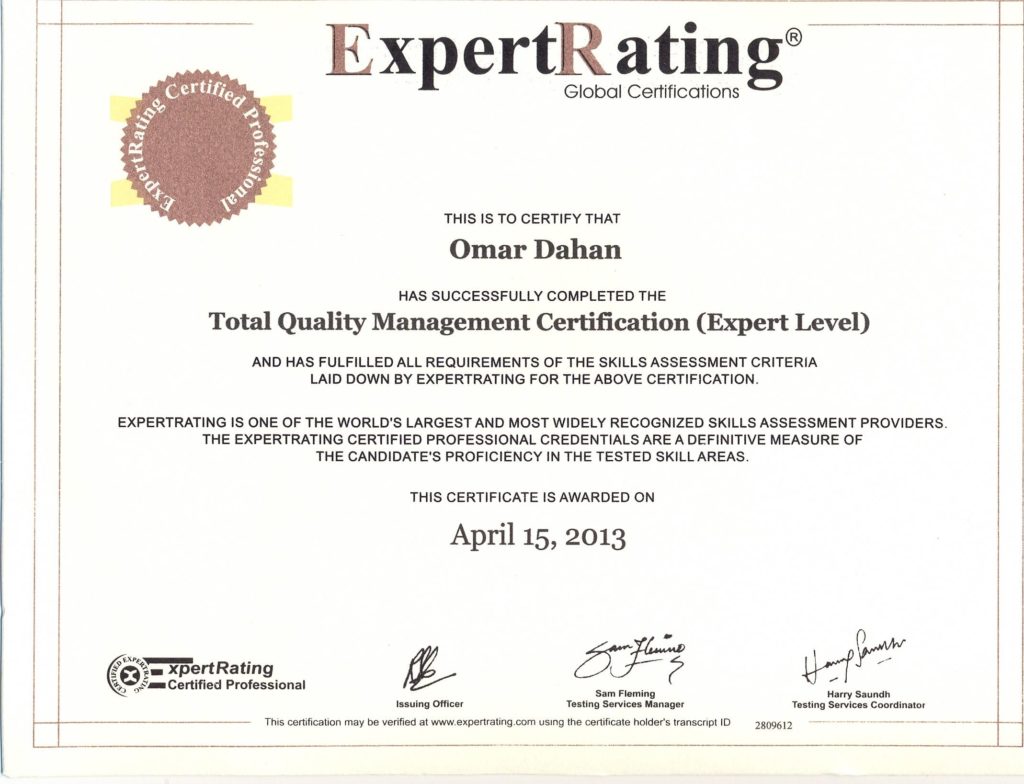
Total Quality Management [Expert-Rating: 2809612]
A management system for a customer-focused organization that involves all employees in continual improvement, using strategy, data, and effective communications to integrate the quality discipline into the culture and activities of the organization. {Customer-focused, Total employee involvement, Process-centered, Integrated system, Continual improvement, Fact-based decision making, Communications}
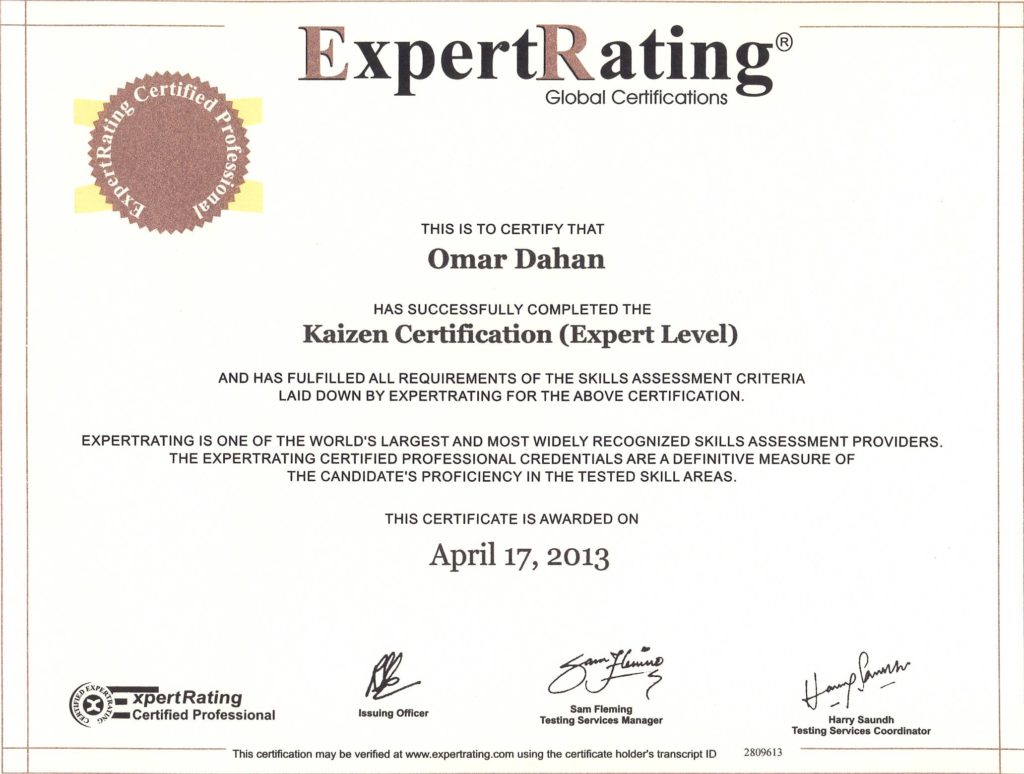
KAIZEN [Expert-Rating: 2809613]
Lean is a renowned methodology that eliminates all categories of waste to help maximize efficiencies. Kaizen means continuous improvement. Together, Lean Kaizen is a proven approach to continuously implement much-needed change and get rid of unnecessary waste. {Ten-Step Process: Define the problem; Document the current situation; Visualize the ideal situation; Define measurement targets; Brainstorm solutions to the problem; Develop Kaizen plan; Implement plan; Measure, record and compare results to targets; Prepare summary documents; Create short term action plan, on-going standards and sustaining plan.}
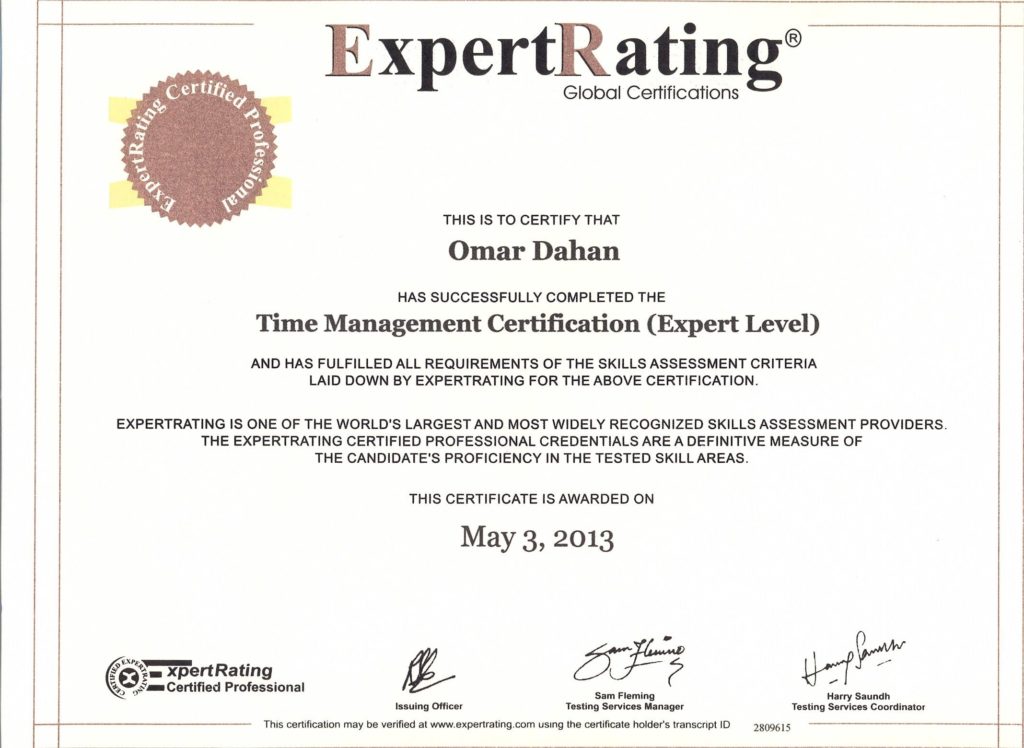
Time Management [Expert-Rating: 2809615]
The process of planning and exercising conscious control over the amount of time spent on specific activities, especially to increase effectiveness, efficiency or productivity. The output limits of any process are set by the scarcest resource (in the process is called “accomplishment”), this is “time” (cannot rent, hire, buy or otherwise obtain more of it). Time management may be aided by a range of skills, tools, and techniques used to manage time when accomplishing specific tasks, projects and goals complying with a due date.
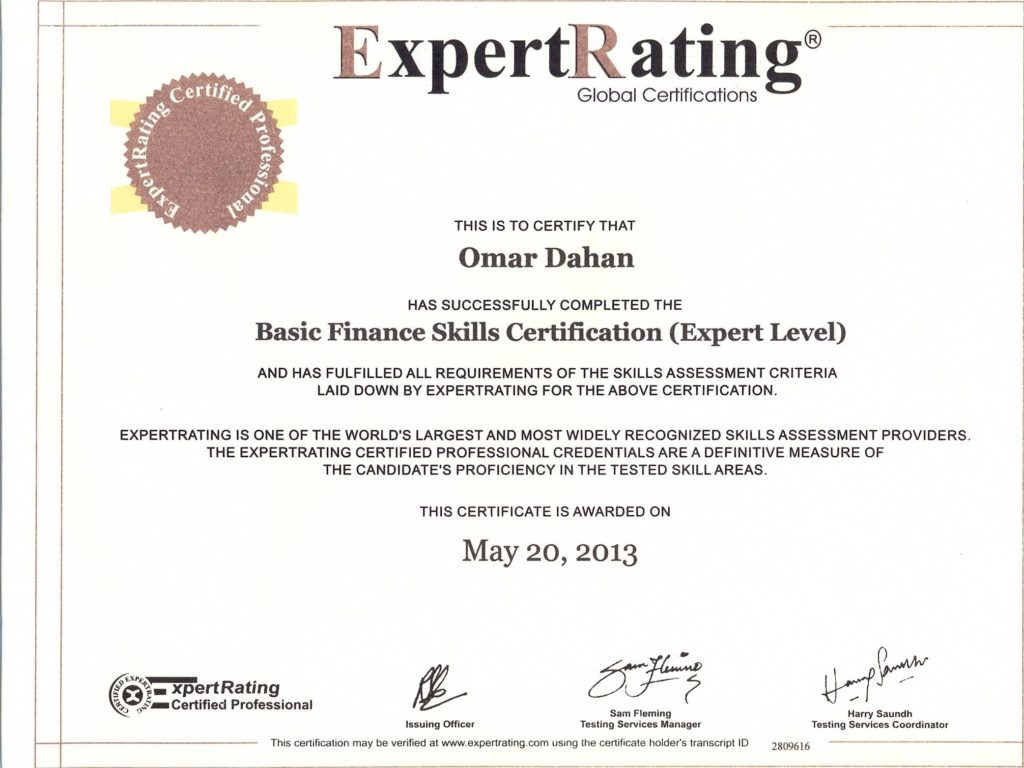
Basic Finance Skills [Expert-Rating: 2809616]
Basic fundamental principles required to manage an organization’s financial resources so as to achieve its business objectives and maximize its value. It involves a defined sequence of steps that encompasses the full range of a company’s finances, from setting out objectives and identifying resources, analyzing data and making financial decisions, to tracking the variance between actual and budgeted results and identifying the reasons for this variance. {Financial Accounting, Principles of Finance, Managerial Accounting, Corporate Finance, Investment Banking, International Finance, Financial Analysis & Valuations, Portfolio Theory, Tools & Techniques}
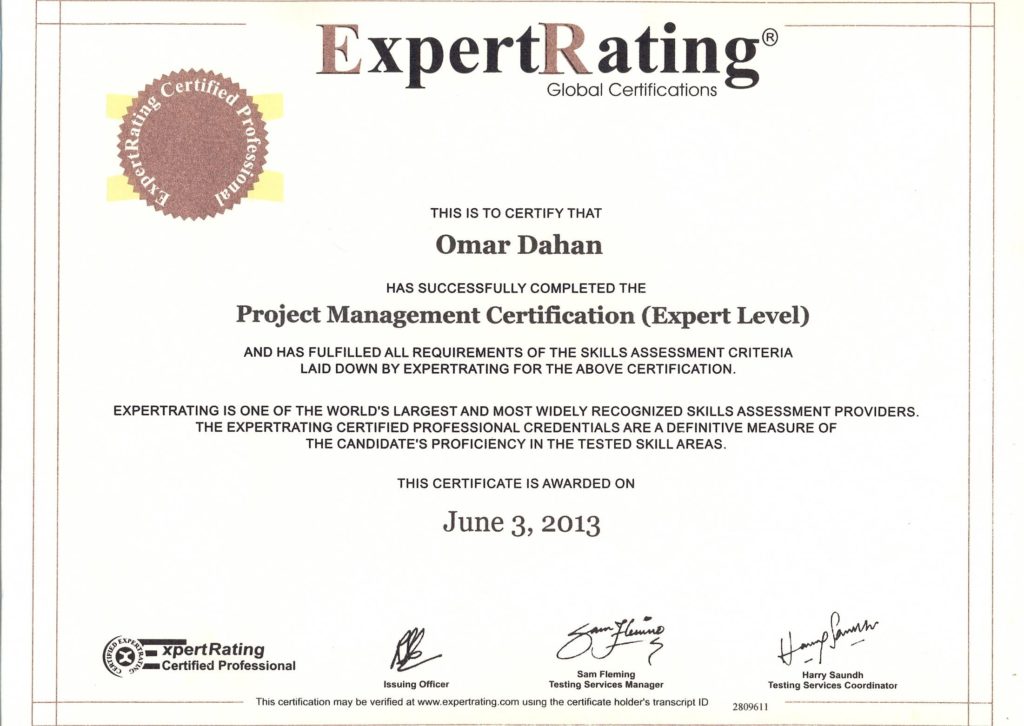
Project Management [Expert-Rating: 2809611]
A discipline of planning, organizing, securing, managing, leading, and controlling resources to achieve specific goals, by application of knowledge, skills and techniques, to execute the project effectively and efficiently.
{Processes: Initiating, Planning, Executing, Monitoring and Controlling, Closing}
{Knowledge areas: Integration, Cost, Human resources, Stakeholder management, Scope, Quality, Communications, Time, Procurement, Risk management}
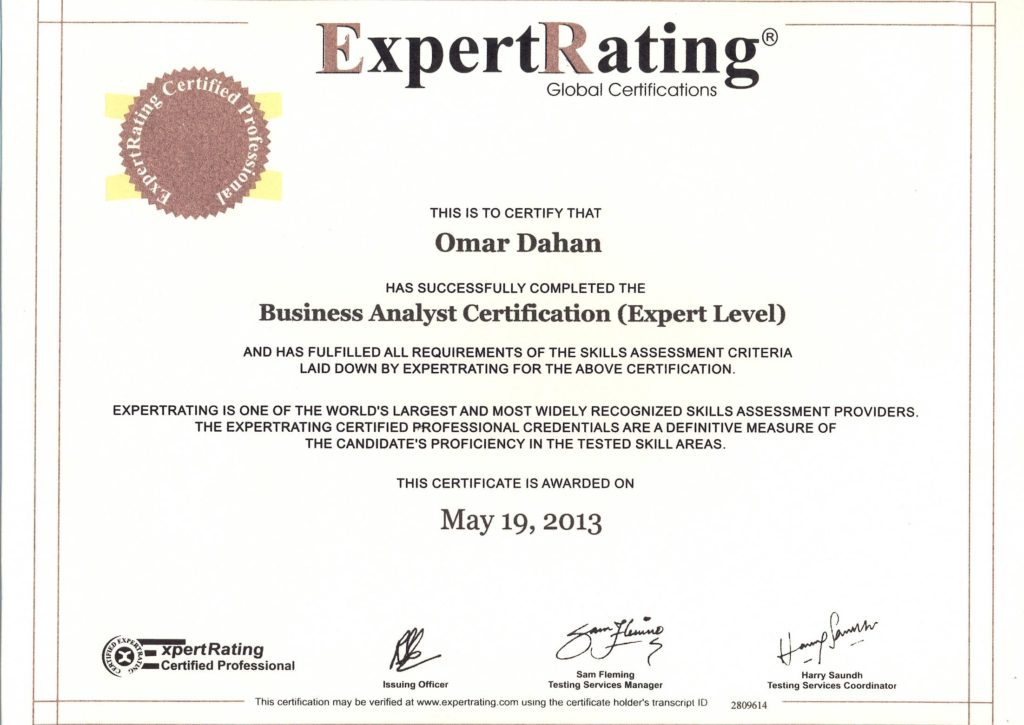
Business Analyst [Expert-Rating: 2809614]
A research discipline of identifying business needs and determining solutions that will maximize the value delivered by an organization to its stakeholders. Solutions often include a systems development component, but may also consist of process improvement, organizational change or strategic planning and policy development.
Business analysts work across all levels of an organization and may be involved in everything from defining strategy, to creating the enterprise architecture, to taking a leadership role by defining the goals and requirements for programs and projects or supporting continuous improvement in its technology and processes.